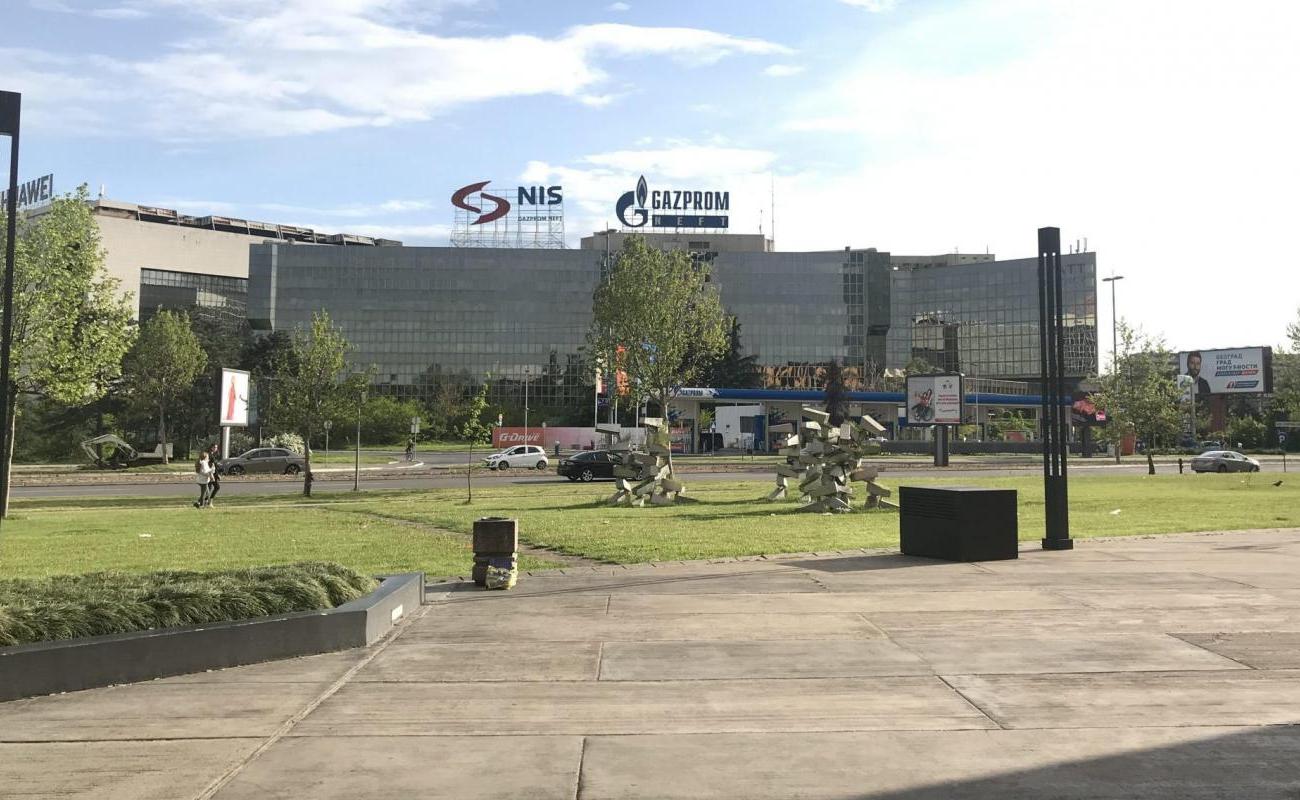US Sanctions Hit Serbia’s Mainly Russian-Owned Oil Company

Sanctions against Serbian oil company NIS, which has majority Russian ownership, finally started to take effect after the firm failed to secure another waiver, sparking fears of petrol shortages and job losses.
Sanctions on Serbia’s biggest oil importer, the partly Russian-owned company NIS (Oil Industry of Serbia), came into force on Thursday morning after the company was not was granted another waiver from penalties from the US Ministry of Finance.
NIS, which supplies over 300 petrol stations in Serbia, said it had secured enough oil to avoid jeopardising supply to consumers.
“Currently, the company has sufficient crude oil reserves for refining and maintains a regular supply of all types of petroleum products to its petrol stations,” NIS said in a statement.
Due to the possibility that foreign payment cards, such as MasterCard or Visa, may no longer be supported at NIS petrol stations, customers will be able to use the domestic payment card Dina, cash, or the IPS instant payment method, the company said.
Amid concerns about potential supply shortages and job losses, NIS said it “remains committed to its priorities of maintaining a regular supply of petroleum products to the domestic market and ensuring the social stability of its employees”.
“Payment for wholesale transactions will still be accepted in dinars,” said NIS, “fulfilling its contractual obligations to its partners, including corporate clients and large consumers.”
The sanctions were initially imposed in January as part of the US targeting of Russian energy companies following the full-scale-invasion of Ukraine. After that, NIS managed to secure a series of waivers, which ended on Thursday morning
President Aleksandar Vucic said on Tuesday that Serbia will now try to resolve the problem by talking to Russia about NIS, which is 45-per-cent owned by Russia’s state-run Gazprom Neft and around 30-per-cent owned by Serbia; another 11 per cent is owned by a Saint Petersburg-based company reportedly linked to Gazprom.
“We will talk to the Russians about everything, because now we have nothing to talk to the Americans about, they have forced their way out,” Vucic said.
Most of the crude oil that Serbia imports arrives via the Croatian oil pipeline operator, Jadranski Naftovod, JANAF.
On Thursday, JANAF said these supplies have been halted because NIS does not have the required licence for the imports.
“JANAF Plc has received information that the company NIS a.d. has not obtained the licence required to continue implementing the Crude Oil Transport Contract, meaning that, as of 8 October 2025, further implementation of the contract will no longer be possible,” JANAF said in a statement.
Vucic also expressed concern that in order to avoid US sanctions, no international bank will want to do business with NIS, while privately-owned Serbian banks “won’t want to disappear or collapse because of those sanctions either”.
He said he hoped that NIS “will not fire a large number of workers”.
NIS and Gazprom petrol stations in Bosnia and Herzegovina will also be affected by the sanctions. As of Thursday, all Gazprom and NIS Petrol stations in Bosnia and Herzegovina owned by NIS will only take cash payments. Bosnian media also report that certain products are already missing from their shelves.
The full activation of sanctions brings into question NIS’s operations in Bosnia and Herzegovina. Since March last year, Bosnian banks have been shutting down bank accounts of sanctioned individuals and companies, following the US Treasury’s Office of Foreign Assets Control (OFAC) warning that any institution providing financial services to sanctioned individuals or companies can be listed as well.
OFAC imposed measures against NIS as a package of sanctions against two of Russia’s most significant oil producers and exporters, Gazprom Neft and Surgutneftegas.
In January, when OFAC first ordered sanctions on NIS, Russia’s Gazprom owned 6.15 per cent of the company and Gazprom Neft, a subsidiary, owned another 50 per cent. Serbia owned just under 30 per cent, and other minority shareholders held just under 14 per cent.
In February, Gazprom increased its ownership to 11.3 per cent, and Gazprom Neft decreased its share to 44.9 per cent. On September 19, the Russian-owned company JSC Intelligence took control of 11.3 per cent of the ownership of Gazprom.
Serbia sold 51 per cent of NIS, its only oil company, to Russia’s Gazprom in 2008 for what critics said was a bargain price of 400 million euros, plus the promised investment of 550 million.
